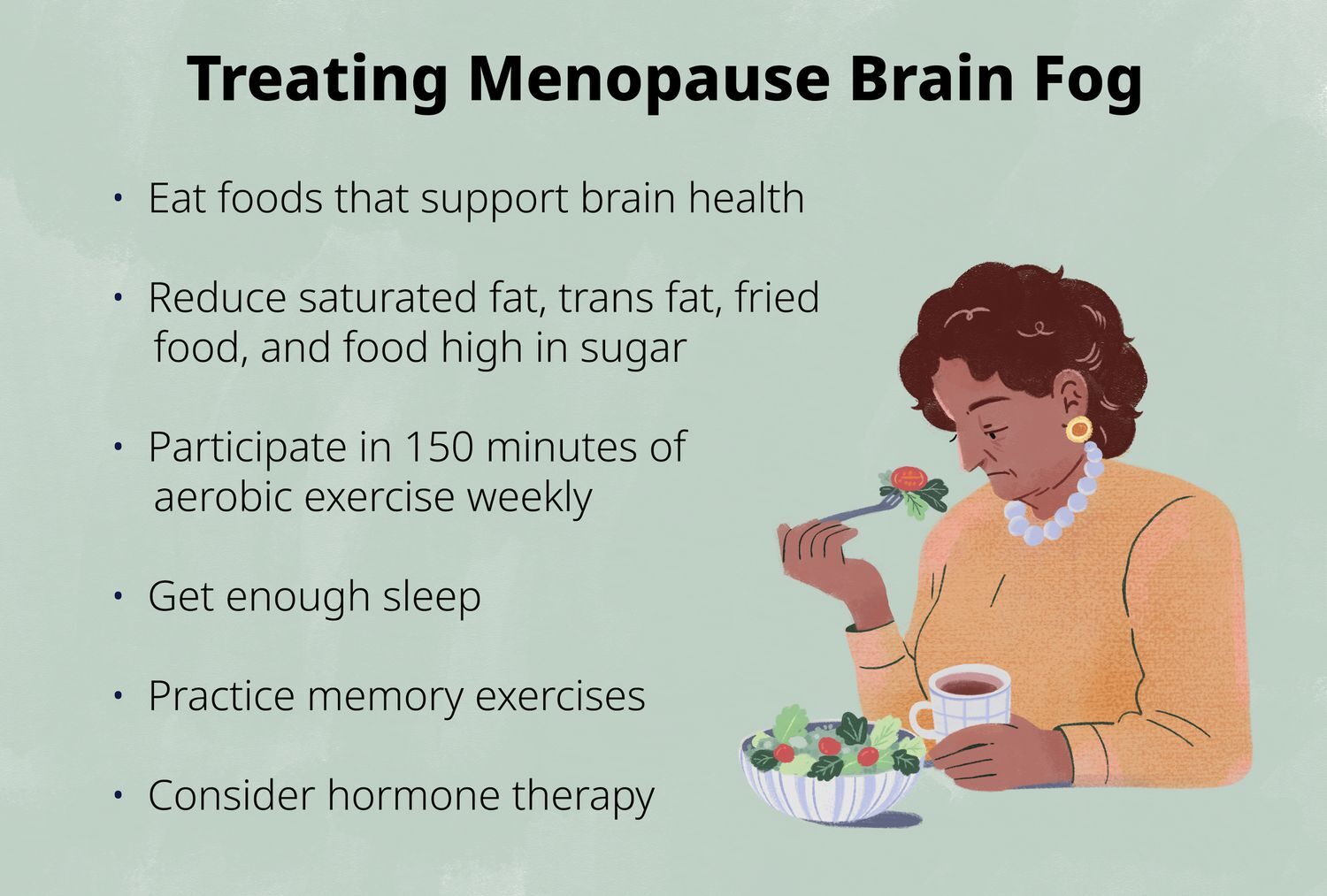Ever walk into a room and forget why you were there? Can’t seem to recall that celebrity’s name even though you just saw them on a billboard? If you’re experiencing these frustrating memory lapses, and you’re also in the throes of menopause, you might be dealing with a phenomenon aptly nicknamed “menopause brain fog.”
But fear not, fellow traveler on this hormonal rollercoaster! This article will navigate the murky waters of menopause brain fog, explaining its causes, symptoms, and most importantly, ways to combat this frustrating side effect.
What is Menopause Brain Fog?

Menopause brain fog refers to a collection of cognitive changes experienced by some women during perimenopause (the years leading up to menopause) and menopause itself. Here’s the gist: as your estrogen levels plummet, it can affect the neurotransmitters (chemical messengers) in your brain, impacting memory, concentration, focus, and overall cognitive function.
Think of your brain as a well-oiled machine. Estrogen helps keep that machine running smoothly. When those estrogen levels drop, the gears start to grind a little, leading to the frustrating feeling of brain fog.
Common Symptoms of Menopause Brain Fog
Have you ever experienced any of these situations?
- Walking into a room and completely forgetting why you were there.
- Struggling to remember names or appointments.
- Having difficulty concentrating on tasks.
- Feeling mentally sluggish and foggy.
- Experiencing difficulty multitasking.
If so, you’re not alone! These are all classic symptoms of menopause brain fog. It’s important to note that the severity of symptoms can vary greatly from woman to woman. Some might experience mild forgetfulness, while others might feel like their brains are on permanent vacation.
Causes of Menopause Brain Fog
While the exact cause remains a bit of a mystery, several factors likely contribute to menopause brain fog:
- Estrogen Fluctuation: As mentioned earlier, declining estrogen levels are a major culprit. Estrogen is involved in a variety of brain functions, so its decrease can lead to cognitive changes.
- Sleep Disruption: Menopause often brings with it hot flashes and night sweats, which can significantly disrupt sleep. Sleep deprivation, in turn, affects memory, concentration, and overall cognitive function.
- Stress: Let’s face it, menopause can be stressful! Coping with physical changes, emotional swings, and life transitions can exacerbate brain fog symptoms.
Dealing with Menopause Brain Fog

Thankfully, there are ways to combat this frustrating side effect of menopause:
- Prioritize Sleep: Aim for 7-8 hours of quality sleep each night. Develop a relaxing bedtime routine and create a sleep-conducive environment.
- Manage Stress: Stress takes a toll on your brain! Practice stress-reduction techniques like yoga, meditation, or deep breathing exercises.
- Stay Mentally Active: Challenge your brain with puzzles, games, or learning a new skill. This helps keep your brain sharp and improve cognitive function.
- Focus on a Healthy Diet: Eat a balanced diet rich in fruits, vegetables, whole grains, and healthy fats. Don’t forget to stay hydrated!
- Regular Exercise: Physical activity isn’t just good for your body, it’s good for your brain too! Aim for at least 30 minutes of moderate-intensity exercise most days of the week.
- Explore Supplements: Talk to your doctor about supplements like omega-3 fatty acids, vitamin B12, or Ginkgo biloba (consult your doctor before starting any new supplements). These may help improve cognitive function.
- Cognitive Training: Consider brain training apps or programs designed to improve memory and focus.
- Organization is Key: Use calendars, planners, to-do lists, and reminders to stay organized and combat forgetfulness.
- Don’t Be Afraid to Delegate: Don’t feel pressured to do it all! Delegate tasks at work or home to lighten your mental load.
- Talk to Your Doctor: If your symptoms are severe or interfering with your daily life, discuss it with your doctor. They can rule out any underlying medical conditions and advise on treatment options.
Conclusion
Menopause brain fog can be annoying and frustrating, but it’s a common experience for many women. By implementing the strategies above, you can minimize its impact and reclaim your mental clarity. Remember, you’re not going wild! Menopause brain fog is a temporary side effect of a natural hormonal shift. Embrace a healthy lifestyle, prioritize self-care, and don’t be afraid to seek support. With a little effort, you can navigate this hormonal hurdle and rediscover your sharp, focused self.
You May Also Like….
- See the Benefit of Eating white Meat Here
- Tingling Toes? Feeling Weak? Unable to Walk? – Guillain-Barré Syndrome
- Face Acids: Secrets to a Glowing Skin
FAQs
Q1: Is menopause brain fog the same as dementia?
No, menopause brain fog is not dementia. While symptoms can overlap (memory lapses, difficulty concentrating), dementia is a progressive neurological disease. If you have concerns about memory loss, discuss them with your doctor to rule out any underlying issues.
Q2: Will my brain fog go away after menopause?
The good news is that for many women, menopause brain fog improves or disappears altogether once their hormone levels stabilize.
Q3: Does hormone replacement therapy (HRT) help with brain fog?
HRT can be an effective way to manage many menopause symptoms, including brain fog. However, it’s not suitable for everyone. Consult your doctor to discuss the risks and benefits of HRT for your individual situation.
Q4: I’m worried about my brain health – what can I do to prevent brain fog?
While there’s no guaranteed way to prevent brain fog, maintaining a healthy lifestyle can certainly help. Prioritize sleep, manage stress, eat a balanced diet, exercise regularly, and keep your mind active with mentally stimulating activities.
Q5: Are there any support groups for women experiencing menopause brain fog?
Absolutely! Support groups can be a great source of information, comfort, and connection. Many online and in-person communities exist to connect women experiencing menopause and its symptoms. Talk to your doctor or search online resources to find a group that resonates with you.


